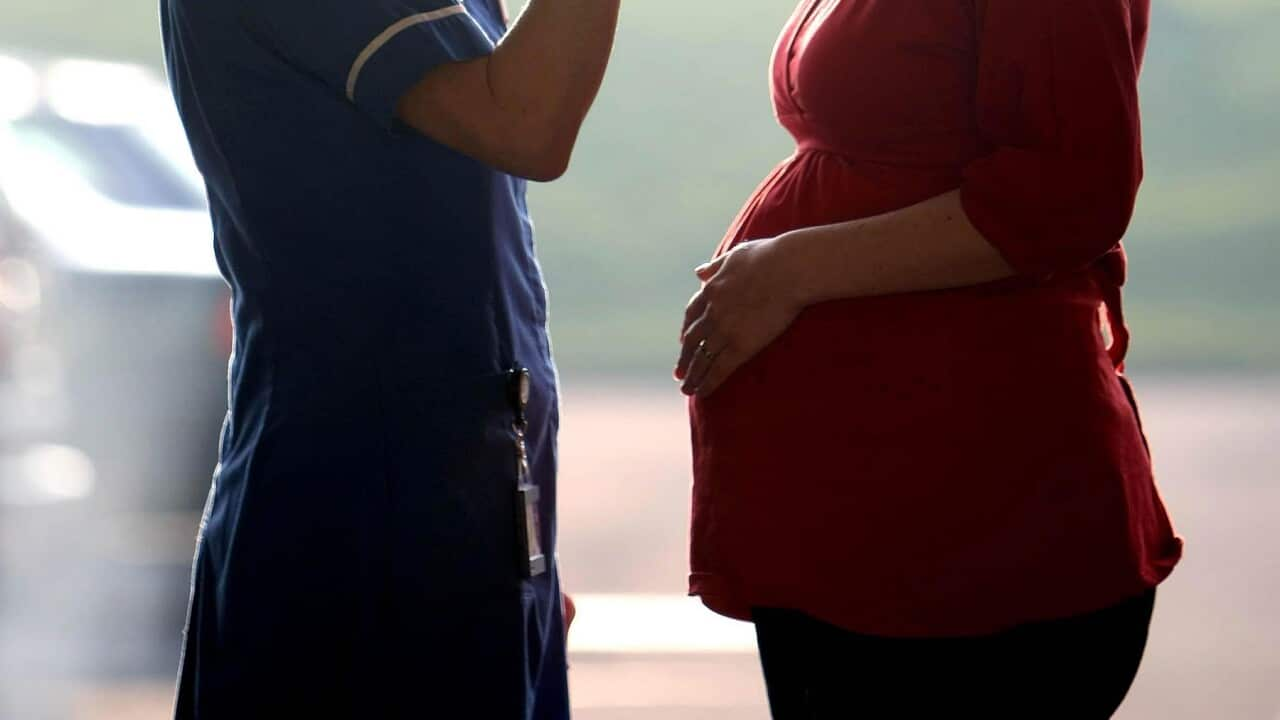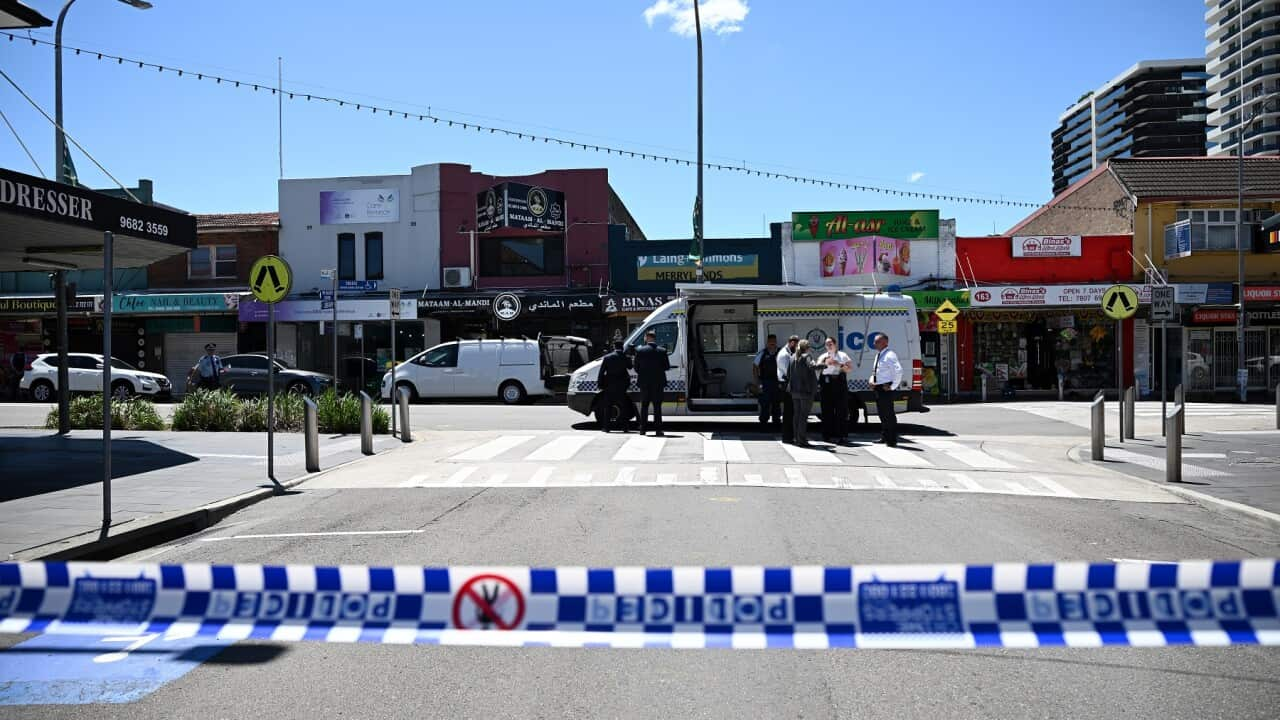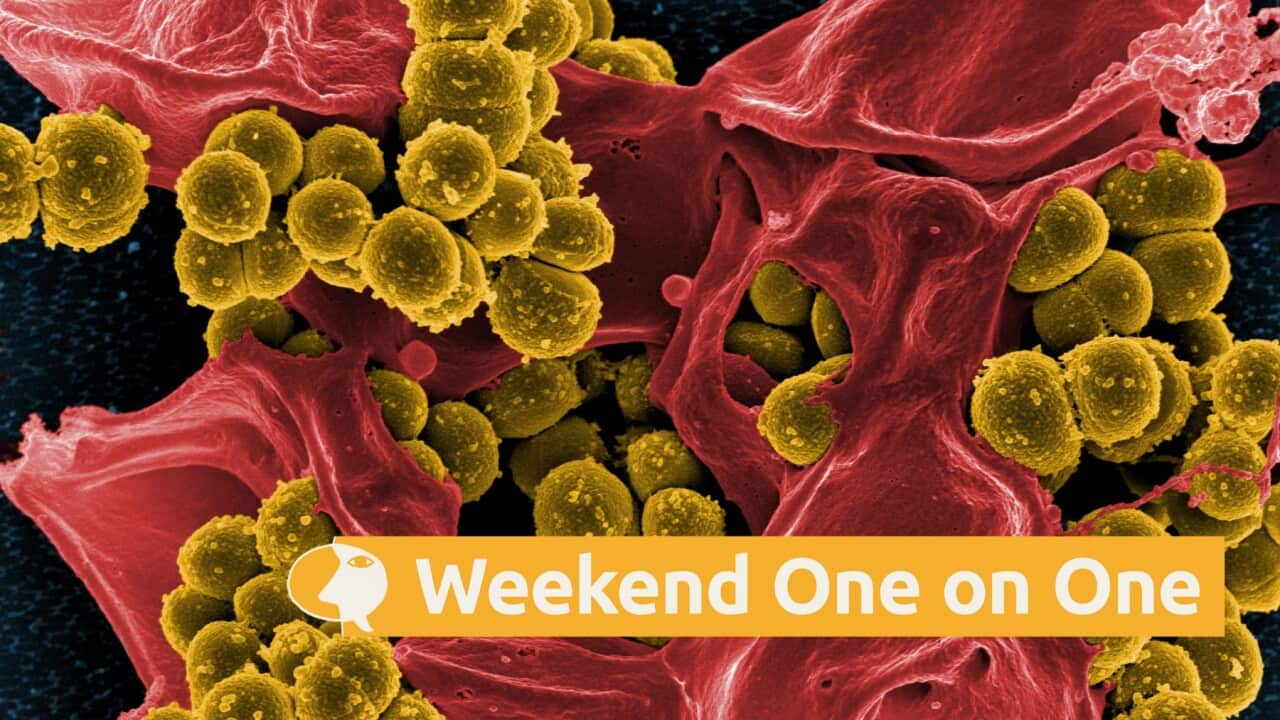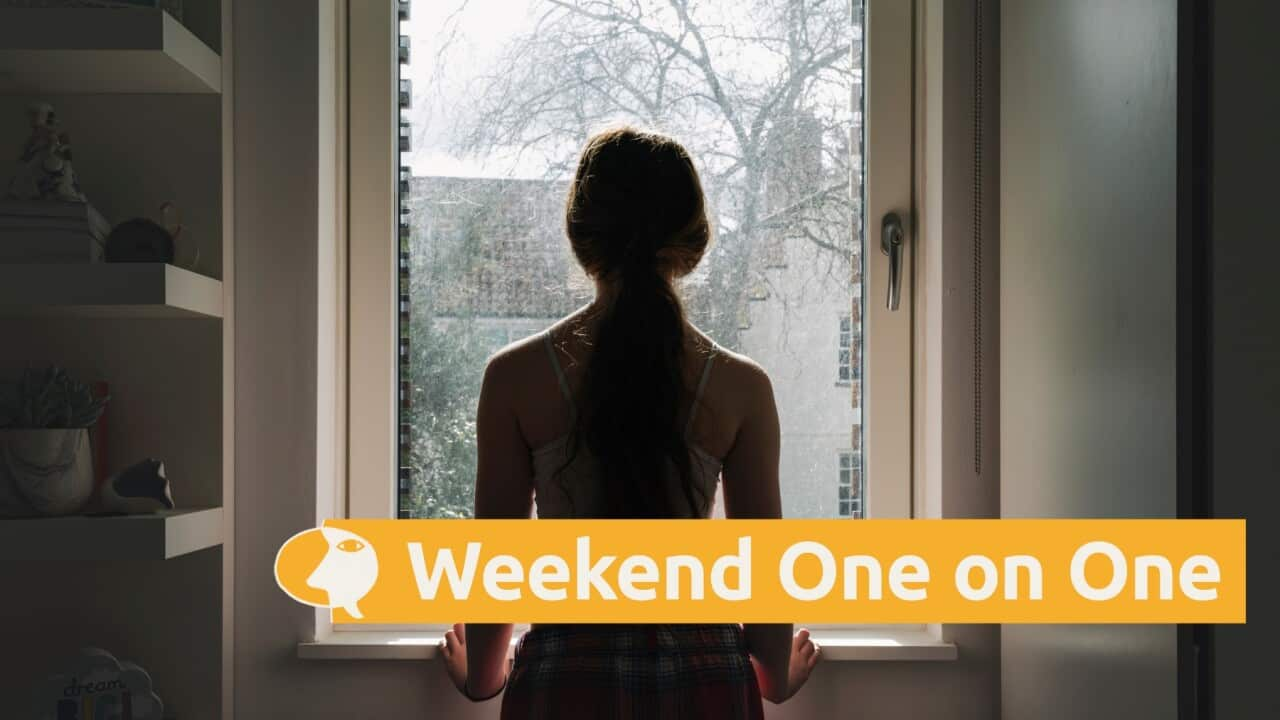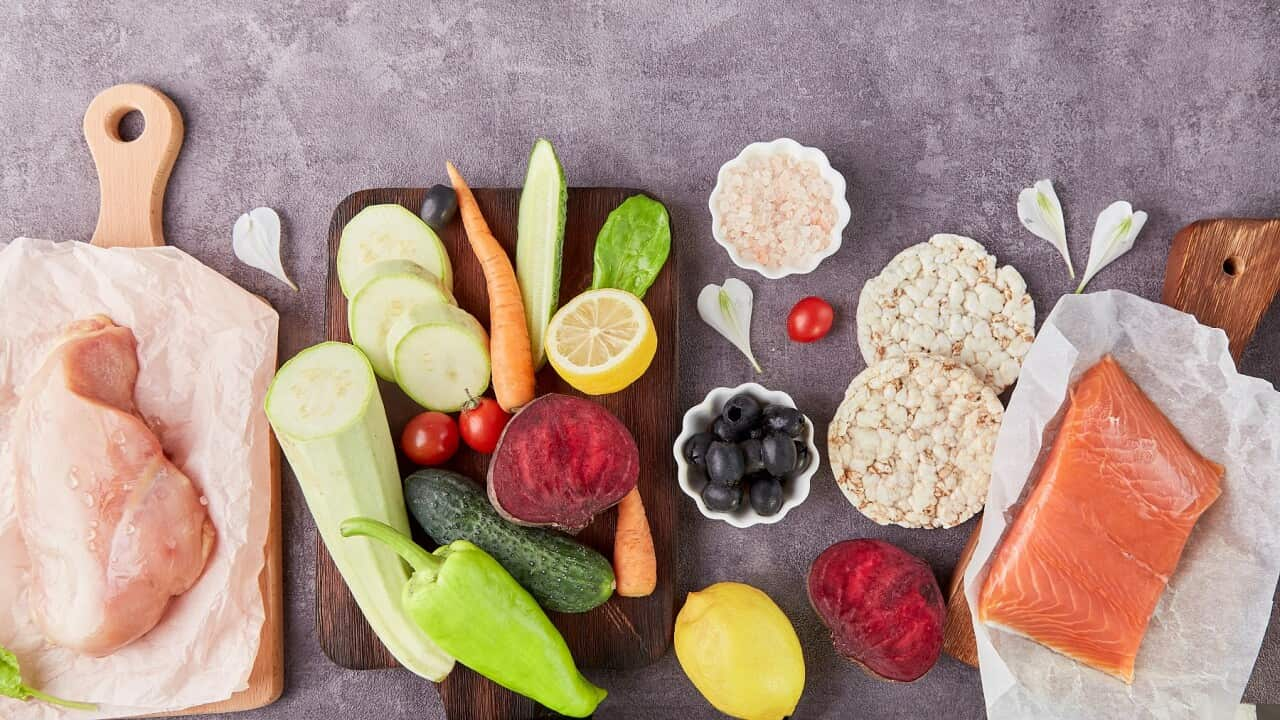Listen to Australian and world news, and follow trending topics with SBS News Podcasts.
TRANSCRIPT:
Liz Buckley-Stokes says she always wanted to be a mother.
But it took a little longer than she expected to try to start a family.
"My husband and I were a little bit later in life getting married, so we really wanted to have children and this was the only way that we could was through egg donation. I was 47, so my age was really against me."
Liz, who is now in her 50s and lives on the Sunshine Coast, says she joined online forums for egg donation but it took around seven months to match with a donor.
"It is quite a long, drawn-out process and it is really hard because you're putting yourself out there and you get nothing in return and it is actually really soul-destroying when you're thinking that you're never going to be a mum and you're never going to have that chance because no-one's responding to your advert."
Liz has since had three children using eggs from the same donor: a six-year-old boy and two four-year-old twins.
She also says she's maintained a close relationship with the donor who made them possible.
"Her reasons for becoming a donor were she had actually had to go through I-V-F herself because she had had to have her fallopian tubes removed, so she understood the process and she understood the heartbreak."
While the process took a while, Liz considers herself lucky to have found an egg donor at all.
Since the first I-V-F babies were born in the early 1980s, the fertility industry has boomed and now around one in every 16 babies born in Australia is conceived via I-V-F, with the demand for donated eggs far outstripping their supply in Australia.
Monash University's School of Public Health senior research fellow, Dr Karin Hammarberg, says increasing fertility struggles are driving demand for donated eggs.
"Generally as a population, women are having children later or start trying for a baby later than they used to. You know, the proportion of women trying in their late 30s or early 40s is much higher now than it was 20 years ago and that means the ones who approach their 40s or are in their 40s. A lot of them will struggle to conceive."
Dr Hammarberg says that often these women are directed to use donated eggs.
They can find them in one of two ways in Australia: through personal connections like Liz or through I-V-F clinics.
However, the Doctor says altruistic donation is still relatively rare.
"Most egg donations in Australia is through a known connection, so someone comes to the clinic and they have a sister or a sister or a cousin or something who is willing to do it for this very person but is not willing to do it for just anyone. And that's where the gap is. We don't have enough people who are prepared to do all this just out of the goodness of their heart."
While the exact number of people waiting for donated eggs is unknown, one survey from The University of Melbourne found that out of 59 women placed on an egg donation waiting list at an IVF clinic, only 13 received a donor egg.
Stephen Page is a fertility lawyer from family law firm Page Provan.
He says this demand has led people to use eggs imported from overseas.
"So, we're seeing eggs imported from the United States, Malaysia and Ukraine, among other countries."
Some hopeful parents also travel internationally to buy eggs and undergo fertility treatment - though other countries can have different legal and ethical standards for the process.
In countries such as the U-S, for example, donors can be paid a significant sum for eggs.
But in Australia, any direct or indirect financial inducements are illegal - which Dr Hammarberg says can create what she argues is a fairly bizarre situation.
"In a setting where everyone gets paid, the doctor gets paid, the clinic gets paid the recipient pays a lot of money, the only person who doesn't get any compensation is the woman who does the actual work. And that doesn't sit well with our understanding of what's equitable."
To try and address the shortage of eggs, experts are now arguing Australia could change its approach to donation.
In the United Kingdom, women are not paid directly for altruistic egg donation either, but donors can receive standardised compensation of around $2,000 for each cycle to cover their costs.
Women can also claim extra compensation for expenses such as travel, accommodation, and childcare.
Dr Hammarberg has suggested that there could be set compensation here in Australia too.
"In a way I think there must be some sort of middle ground here where there's some kind of recognition of the effort and some kind of appreciation of the fact that the woman takes risks and she goes through all of this."
Stephen Page agrees that Australia could make some changes and suggests that women could be better informed about the possibility of eggs they have already frozen with I-V-F clinics for personal use.
It's estimated there are approximately 100,000 eggs currently sitting in storage in Australia.
And one study that examined ten years of egg freezing in Victoria found less than 13 per cent of patients returned to use their eggs each year.
"We're having lots and lots of eggs being frozen but hardly any of those extra eggs being frozen are being donated or used. Part of the problem is we have all these eggs in storage, none of them or very few of them are being made available for donation and maybe they won't be but if some of those women are encouraged and counselled and are willing to donate, that will help solve this problem."
Mr Page says that ultimately, using eggs from local donors could make things more fair for children born from these pregnancies.
"If we think of it from the child's perspective, from the child's perspective, many donor-conceived individuals want to know where they've come from. If they know that the donor is somewhere in Australia, that makes it a lot easier. It's just really easy and simpler. They're down the road or they're in the next state, they're not on the other side of the world where I may never find them."
However, it is unlikely these changes will come soon and while Australia's supply and demand issue continues, Liz says she will try to connect donors and hopeful parents on a Facebook group she now runs.
She says she sees the continued impacts of a lack of donor eggs every day.
"It breaks my heart. I know quite a few women in the group that I've personally spoken to and messaged on Facebook that still haven't found a donor. One of them has pretty much been on the group since it started, so about five years. It's really hard and it breaks my heart when I hear there stories. There's not a lot more that I can do than give them the support and give them the platform."
